Obesity
- Obesity is a complex disorder which involves an excessive amount of body fat due to negative energy balance and also other factors responsible.
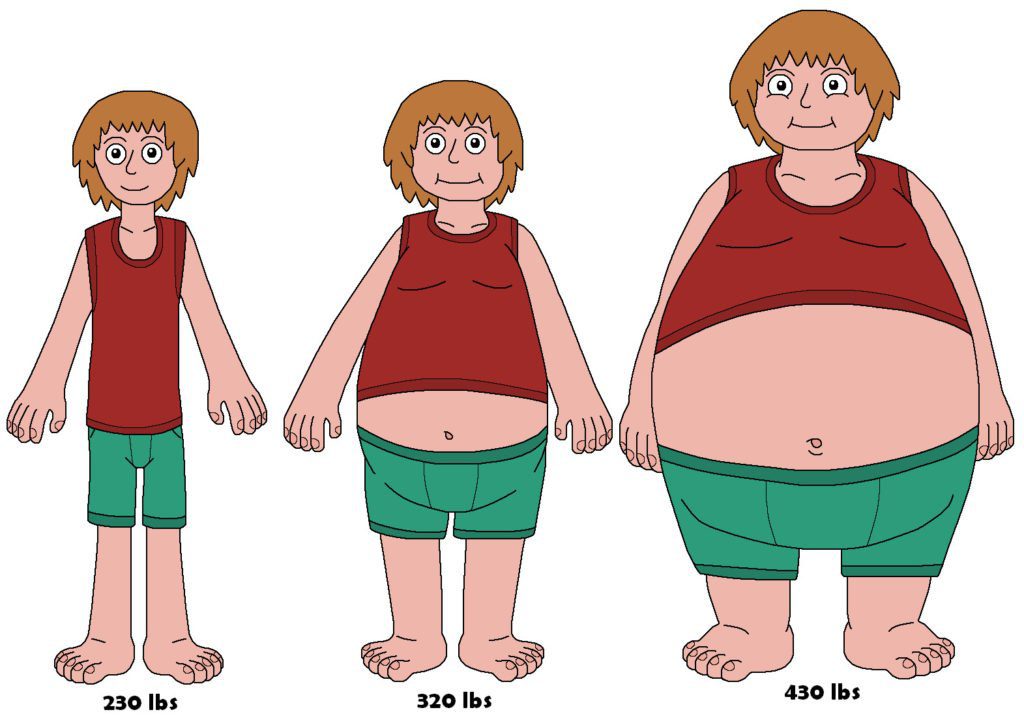
- It increases the risk of diseases and various health problems.

Let’s know about today’s scenario:
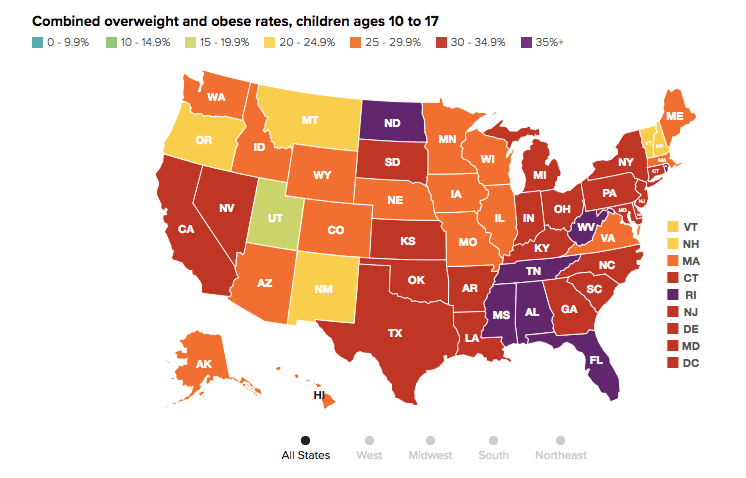
- People are super packed and busy in today’s life having very less time for relaxation or time for doing anything good. basically hardly zero time to prepare and cook healthy food for satisfying hunger so what we make do with all the junk and fast ready to eat food that is available.
- but the result of eating too much of the above food results in a word called obese.
- with the effort of several years when we reach the position of being obese, it is then that we start to realize something is going wrong with our body.
- we start visiting the clinic and even start searching for options that will help us to reduce our weight.

Body mass index (BMI) describing height and weight in one number that can help us to tell if someone’s weight is overweight/normal/underweight
Body Mass Index
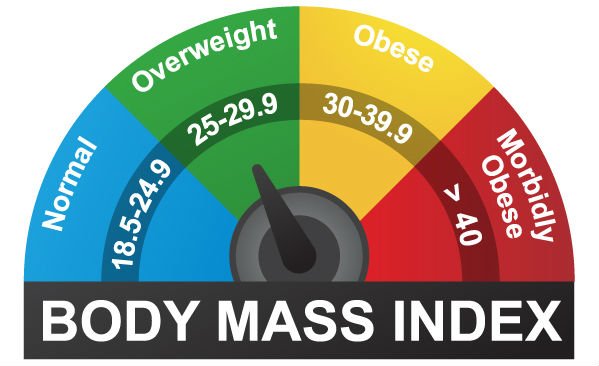
To find out our BMI, simply multiply our weight in pounds by 703 and divide it by our height (in inches) squared.
OR,
Weight in Kg/Height in metre square
Generally Obesity is defined as having BMI of 30.0 or above.
The other ranges ,
- Overweight = 25.0 to 29.9
- Normal weight = 18.5 to 24.9
- Underweight = under 18.5
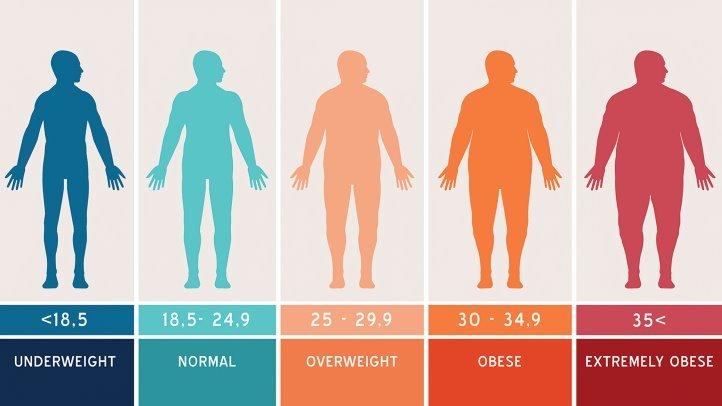
Causes of obesity include:

- Eating a diet high in fats and calories
- Having a sedentary or an (inactive) lifestyle
- Inadequate sleep can lead to hormonal changes that make us feel hungrier and crave for certain high-calorie foods
- Hereditary which can affect how our body processes food into energy and how fat is stored
- Old age which can lead to less muscle mass and a slower metabolic rate, making it easier to gain weight
- Pregnancy
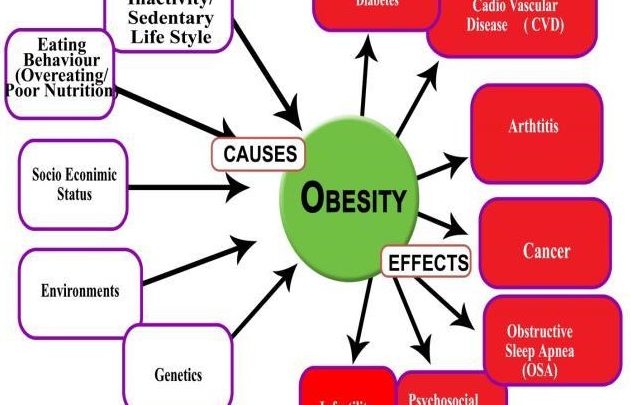
Medical conditions can lead to obesity too

- Polycystic Ovary Syndrome
- Hypothyroidism in which the thyroid gland doesn’t produce enough of certain important hormones
- Osteoarthritis lead to inactivity
- Prader-Willi syndrome condition that an individual is born with which causes excessive hunger
- Cushing syndrome caused by having an excessive amount of the hormone cortisol in our system

Conditions occurring due to obesity
- High Cholesterol
- Joint problems caused by extra weight
- Trouble breathing
- Sleep apnoea,a condition in which we briefly stop breathing while we are asleep
- Heart stroke
- Stroke
- Type 2 diabetes
Complications of Obesity
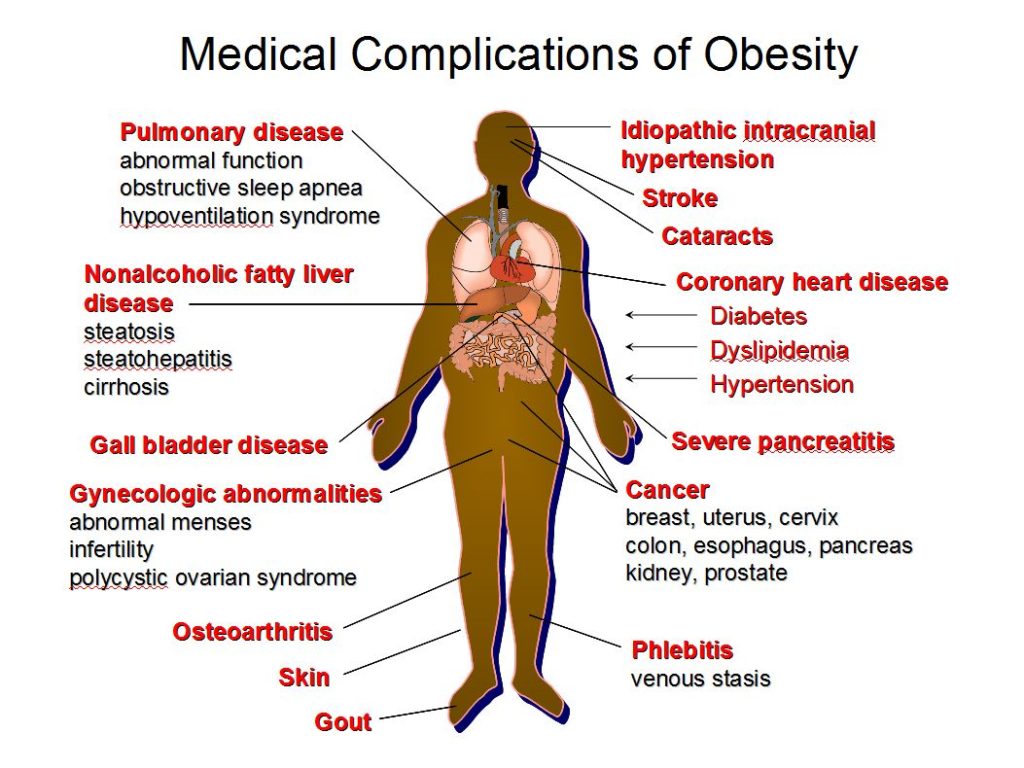
- High triglycerides /Tg
- Low high-density lipoprotein (HDL) cholesterol
- Type 2 diabetes
- High blood pressure/Hypertension
- Heart disease
- Stroke/cardiac arrest
- Cancer which includes cancer of the ovaries, breast, colon, rectum, oesophagus, liver, gallbladder, uterus, cervix, endometrium, pancreas, kidney and prostate
- A combination of high blood sugar, high blood pressure or hypertension, high triglycerides and low HDL cholesterol(good cholesterol).
- Breathing disorders, like sleep apnoea, a potentially serious sleep disorder in which breathing repeatedly stops and starts
- Gallbladder disease
- Infertility and irregular periods
- Erectile dysfunction

- other sexual health issues
- Non-alcoholic fatty liver disease in which fat builds up in the liver and can cause inflammation.
- Osteoarthritis

Risk for obesity
Environment and community
The environment at home, at school, and in your community, can all influence how and what we eat and how active we are
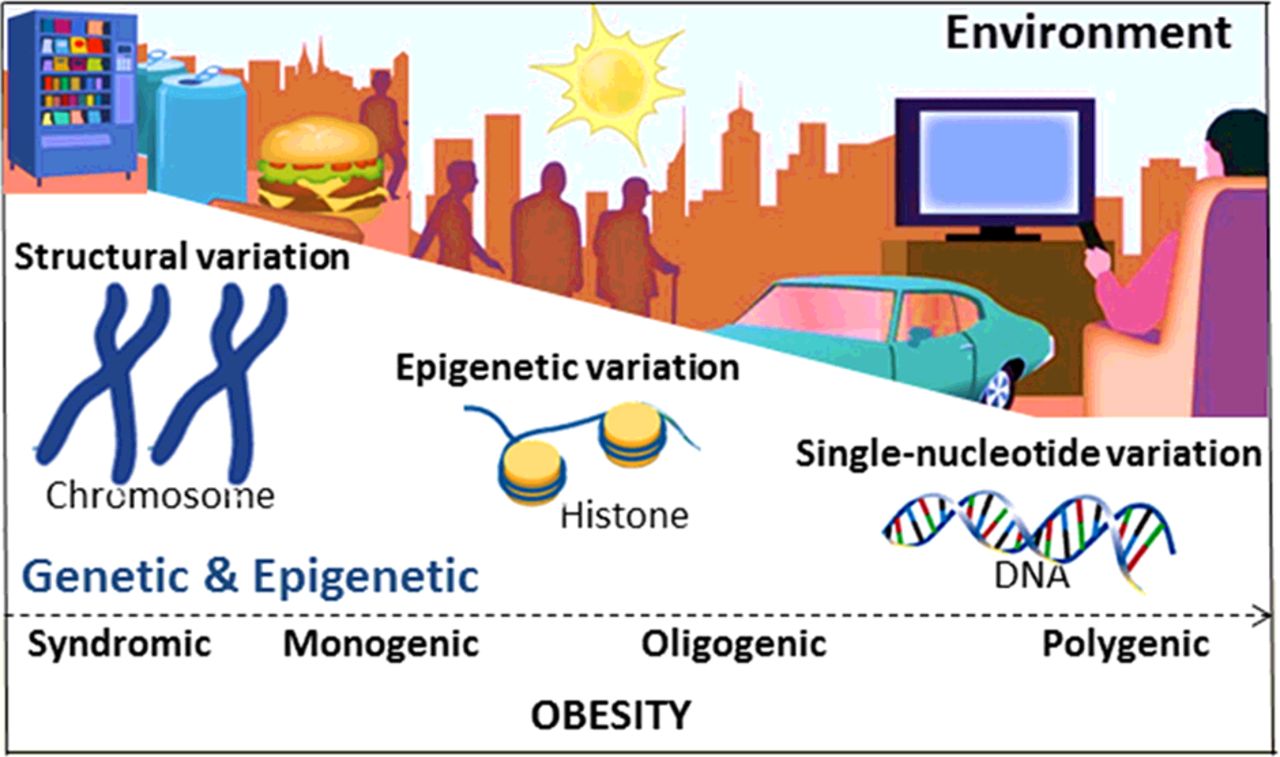
Psychological and other factors
Depression also leads to weight gain, as people turn to junk or fast food for emotional comfort.
Some antidepreesant medicine can also increase the risk of our weight gain.
Lifestyle Matters
- It’s definitely a good thing to quit smoking but quitting can also lead to weight gain.
- So it’s important to focus on diet and exercise while you’re quitting.
- Steroids or oral birth control pills can also put us at a greater risk of weight gain.

Genetics
Genes may affect the amount of body fat we store, and where that fat is distributed.
Genetics play a role in how efficiently the body converts food into energy and how the body burns calories during the workout.
Obesity tends to run in families.
If our parents are obese, the risk of being obese is increased.
Family members have a tendency to share similar eating and activity habits.
Lack of Physical Activity
Sedentary lifestyle tends to take in more calories every day than we burn through exercise and routine daily activities.
Medical problems like arthritis can lead to decreased activity, which contributes to obesity.
Unhealthy diet
A diet higher in calories and which lacking in fresh fruits and vegetables, full of fast food, and rich in with high-calorie beverages contribute to weight gain.

Medical problems
In a few people, obesity can be said and traced to a medical cause, like in Prader-Willi syndrome, Cushing’s syndrome etc.
Medical problems like arthritis, also can decrease the activity, which may result in weight gain.
Certain medications
Medications that can lead to weight gain if we don’t compensate by our diet or activity/exercise are some antidepressants, antipsychotic medications, anti-seizure medications, diabetes medications, steroids and beta blockers.

Social and economic issues.
Social and economic factors to obesity. obesity is common if we don’t have safe areas to work out or exercise.
Also, we may not have been taught proper healthy ways of cooking or even we don’t have money to buy healthier foods.
Age
Obesity can occur at any age.
But as we are ageing, hormonal changes and sedentary lifestyle increase our risk of obesity.
The amount of muscle in our body also tend to decrease with age which leads to a decrease in metabolism.
These type of changes reduce calorie needs, and can make it more hard to keep off excess weight.
Pregnancy
During pregnancy, a woman’s weight necessarily increases.
Women find this weight difficult to lose after delivery as weight gain may contribute to the development of obesity in women.
Quitting smoking
Quitting smoking is quite often linked with weight gain.
Even for a few people, it can lead to enough weight gain that the person becomes obese.
But definitely in the long run, however, quitting smoking is still a greater benefit to our health than continuing to smoke.

Lack of sleep.
Insufficient sleep or oversleep can cause changes in hormones that increase your appetite.
We crave foods high in calories and carbohydrates, which can contribute to weight gain.

But yes we can counteract most risk factors through our diet, physical activity and exercise, and some behaviour changes.

Weight linked problems which can affect quality of life include:
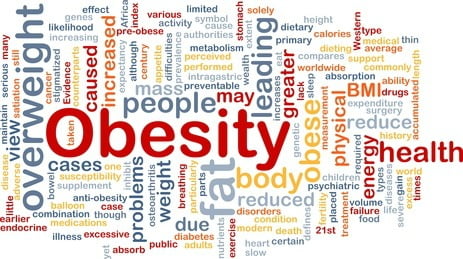
- Lower work achievement
- Depression
- Disability
- Shame and guilt
- Social isolation
- Sexual problems
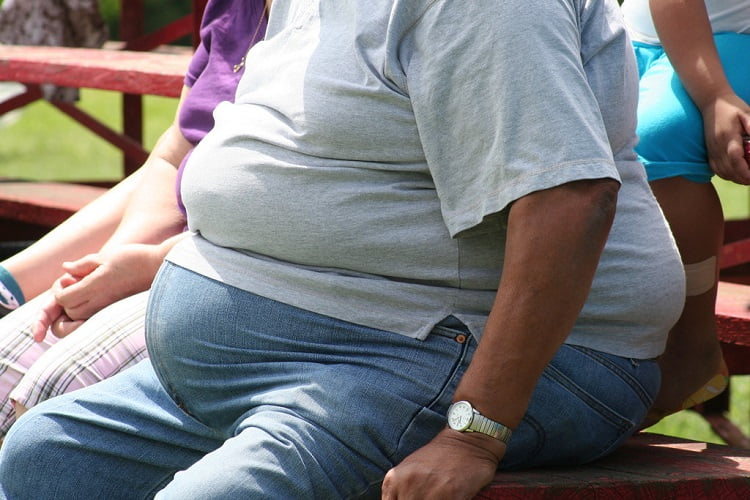
Also,this is not the end.
Don’t worry just look into my next blog to know about how we can manage our obesity and its associated complications or conditions.







